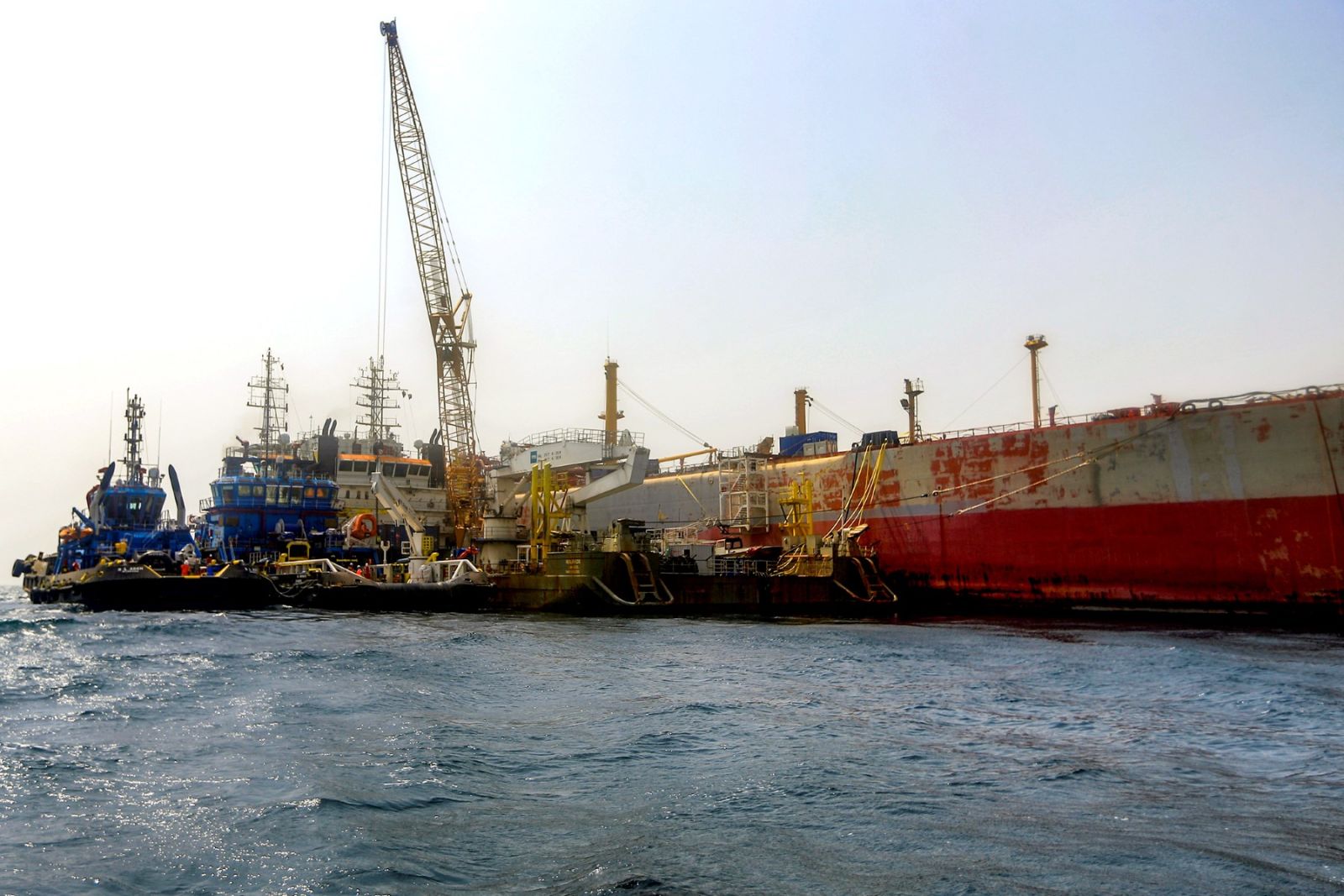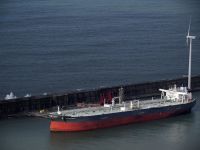$140m operation to defuse ticking Yemen coast oil tanker time bomb off of
ALBAWABA – The United Nations (UN) has embarked on a $140 million mission to transfer the oil from a stricken tanker off the coast of Yemen that maritime experts have called a “ticking time bomb,” according to Bloomberg.
The vessel has been stuck for years with more than a million barrels of crude oil sitting on it, but it has been inaccessible due to the ongoing war in Yemen.
The Houthi militia, which controls the region around the ship, agreed in September to back a UN effort to move its cargo onto another, younger tanker that will remain there instead.
An on-board appraisal of the 47-year-old ship, the FSO Safer, which is owned by Yemen’s national oil company, found that the vessel is in a bad state.

An initial assessment discovered the presence of oxygen in all of the Safer’s fuel tanks. This makes these tanks highly explosive, said Peter Berdowski, CEO of SMIT parent company Royal Boskalis Westminster NV, said at an event in The Hague on Monday.
“Every small spark could completely destroy the vessel and lead to a huge disaster,” he said.
“It’s not a matter of exaggeration, it’s a matter of fact that the tanker is in such a poor state that it is literally a ticking time bomb,” Berdowski warned.
It is in such a state of disrepair, Bloomberg reported, that it could blow up or fall apart at any moment. That would cause an environmental and humanitarian catastrophe that could cost tens of billions of dollars to clean up.
That’s heightened international concern and precipitated plans for a team from the Netherlands-based SMIT Salvage BV to start working on the vessel. The mission will eventually cost more than $140 million.
But when experts boarded the ship two weeks ago, according to Bloomberg, they found its overall condition was not as bad as feared. However, it is still “the worst example of a live oil tanker we have ever seen,” Berdowski highlighted.
A replacement vessel, the 15-year-old Nautica, will be sailed and anchored alongside the Safer for the oil to be transferred from the old tanker to the newer one.
The risk in that process lies in that should there be a crack in the hull of the old tanker, oil could spill.
The UN Development Programme (UNDP) has secured insurance cover for the operation, allowing the ship-to-ship transfer to begin.
The UN has raised $115 million for the mission, though another $28 million is needed to meet the total costs, UN representative David Gressly announced on Monday.
The Nautica cost $55 million, roughly double what the UN originally expected as ship prices surged following Russia’s invasion of Ukraine, Bloomberg explained.







